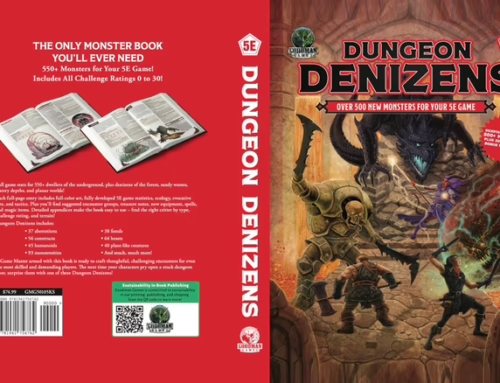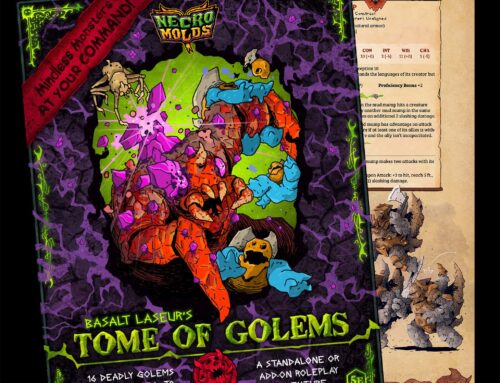Giving grammar short shrift is a surefire way to get shot down.
Recently, I was invited to enter an online writing contest, one in which the competitors posted partial or completed stories on a website. Contestants and the public alike could then read and rate each piece of fiction.
I confess I didn’t make it past the synopses of most entries. Awkward sentence structures, misplaced punctuation and more clichés than I could shake a red pen at—such obstacles prevented me from taking a chance on stories that clearly scrimped on the fundamentals of strong writing.
For instance, if you are not 100 percent sure you know how to use a semicolon, please don’t use one!
I couldn’t bring myself to submit to the contest. It just screamed “amateur hour.”
Maybe I’m being too harsh. After all, grammar is the one aspect of writing that has always come easy for me. Just about every job I’ve had since college included proofing among its duties. This scientific, rules-based side of the craft appeals to my left-brain proclivities.
There are many, many ways to screw up a story, and I admit I have my share of weaknesses. But since every writer has the same set of guidelines when it comes to parts of speech, punctuation, and so forth, I can’t wrap my mind around why so many of us slack off when it comes to grammar. This should be low-hanging fruit!
Or maybe every writer doesn’t need to be a whiz when it comes to grammar. I’m certain some of the best authors depend heavily on editors to take a great story and make it even better by removing errors of all kinds. But because we live in a DIY era of publishing, I sometimes worry that self-published writers don’t realize the poor impression they make when their dialogue is marred by missing commas or when misplaced modifiers confound the semantics of sentences.
Maybe the average reader is more forgiving than I give them credit for — or, at least, more forgiving than I am — but I have to believe grammar and usage matter. If nothing else, it adds polish to any given plot.
For me, fixing sentences is like a game, but since proofing isn’t every writer’s idea of fun, I’ve been kicking around the concept for a grammar-based video game as far back as March 7, 2012. I envision the app would help writers of all kinds could become more comfortable with punctuation in particular.
The odds that I’ll ever find the time (and the developer talent) to create this game are admittedly slim, but I thought I’d share these early notes. Reading on probably won’t make you a better proofreader, but it might make you smile.
* * *

Lawlessness didn’t necessarily work out so well in the Wild West. Y’all better tame your syntax. Attribution: John C. H. Grabill [Public domain], via Wikimedia Commons
Who is the target audience?
I’m reluctant to make it too childish because I think a lot of adults could benefit from a brush up on their punctuation. But I also believe that an adult (whether a writer or some other kind of professional) will be more likely to try out a grammar tutorial if it’s clever and fun. So, off the top of my head, I’d say this game is aimed at middle schoolers on up.
What is the genre?
I want to keep this simple, in no small part because I’ve never designed a video game. Also, if this is going to be an app, it has to be small enough to download to a smart phone. That means a crazy, comprehensive game that blends/bends several genres isn’t going to work. Also, I don’t want there to have to be much, if any, typing because it’s a pain in the butt to type for any significant amount of time on a tablet or smart phone.
The first thing that comes to mind is a story-based shooter (e.g., blasting away improper punctuation and then selecting the character, if any, that belongs in the slot). But I’m not sold on that.
What is the tone/theme?
Due to the small scope of the project, I want to dive into a pre-established trope, thus avoiding needless explanation/development. Plus, being a fan of puns, it opens the door for some real groaners. My first thought was a sword-and-sorcery setup because the pen is mightier than the sword, and I could have a full-fledged grammar wizard teaching his young apprentice. Too “Harry Potter,” methinks. Besides, a grammar wizard sounds too much like a computer wizard program that checks for grammar.
After writing the descriptions for a couple of the “enemies” (below), I am envisioning the bad guys’ bios in the form of a wanted poster, which opens the door for a Western. And like the settings of most Western stories, I expect the humor will be very, very dry.
Who are the heroes?
Perhaps the player chooses among three characters. If there’s no difference between their skills/attacks, then it doesn’t make sense to offer three choices because it’ll just take up needless space. However, if each hero has his own approach (time trials vs. strategy vs. something else), then I would advocate for the following three crime-fighting characters:
- Johnny Redpen — a hot-tempered quick draw, Johnny Redpen’s speed with a sixshooter is matched only by his hatred for good punctuation gone bad.
- Edith Goodword — kindly schoolmarm by day, vigilante typo-hunter by night, Miss Goodword isn’t afraid to spread the gospel of good grammar in even the seediest of sentences.
- Dominic “Doc” Proofer — the retired sheriff of Syntax Springs, Doc isn’t ready to hang up his shotgun, not when unruly marks are running amok and he can help make the West a little less wild.
Who are the villains?
- Slim Semicolon
- Dash Dastardly
- Miss E. Lipses
- Colon McClock
- The Savage Slash and his half-wit of a half-brother Backslash
- James Trouble (with a capital T)
- The Quote-Crazy Kid
- Old Man Apostrophe, the grocer
Who is the final boss?
- Mr. ? (pronounced “Mister Huh?”) — The mysterious mastermind, he believes rules are meant to be broken and covets the mythical “Poetic License,” which will allow all manner of ne’er-do-wells to swarm previously perfect grammatical constructions.
What’s the concept?
The storyline unfolds through the poorly punctuated sentences our heroes are correcting.
* * *
Whether or not you think The Good, The Bad, and The Ungrammatical would make a worthy video game, I encourage any writer who lacks the basic understanding of grammar (and/or lacks a professional proofreader) to find some way to brush up on the subject.
If you don’t fix bad grammar and poor punctuation, you’re just shootin’ yourself in the foot.
Period.



As always, David, very well done. And clever as hell.
We were talking about non fiction book? Well here’s your in.
You don’t have to be published to help dummies with grammar.
Go for it. A concise chap book sort of thing, done in the aforementioned comic style.
Leave it to you to come up with a winner like this!
“Grammar for Groundlings.” There you go! Free of charge.
Don’t remember groundlings? They were the dummies who attended Shakespeare’s plays and were obliged to stand during the whole damned play.
Best as always,
Thomas Agrommus (Otherwise known as “The Sleeper.”
You make a good point, Tom. If I can’t drum up the developer (or time) to make a game, this could still be a fun “survival manual.”
Thanks, as always, for reading!
DAVID! This is an idea whose time has come!! You should send this on to the good folks at Grammarly – they might be able to help. And aside from your extremism regarding semi-colons and dashes – two delightful punctuation marks of which I am quite fond – I agree with you 100% on your grammar stance. We all should be fluent in writing in our native language! 🙂
Thanks, Mel. It’s good to have a few potential projects stewing on the back burners. Who knows? Maybe I’ll look into Kickstarter one of these days. 🙂